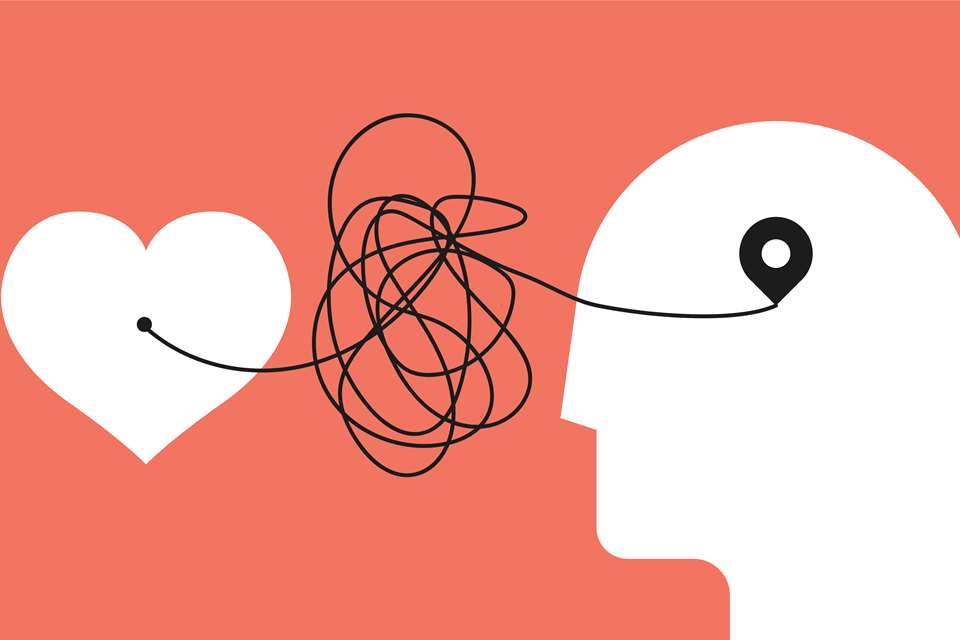Dr Sian Williams: 'If music were a drug, we’d be prescribing it regularly'
Dr Sian Williams
Monday, May 12, 2025
Psychologist and BBC Radio 3 Unwind presenter Dr Sian Williams marks Mental Health Awareness week with her reflection on the central role music can play during our most challenging moments, and on the science behind the calming effect of classical

 Music is a powerful mood-enhancer. I’m sure there are times in your life when it’s lifted you, or voiced an emotion that’s too hard for words alone. When my Dad was dying in a hospice and after we’d said all we needed to, we sat together and played Welsh hymns with simple, bittersweet melodies like Welsh hymn Calon Lan, which took him back to a land he’d left, but which had never left him. As a psychologist, I understood how music could help him through his last days. As his daughter, I knew how important it would be for me, afterwards.
Music is a powerful mood-enhancer. I’m sure there are times in your life when it’s lifted you, or voiced an emotion that’s too hard for words alone. When my Dad was dying in a hospice and after we’d said all we needed to, we sat together and played Welsh hymns with simple, bittersweet melodies like Welsh hymn Calon Lan, which took him back to a land he’d left, but which had never left him. As a psychologist, I understood how music could help him through his last days. As his daughter, I knew how important it would be for me, afterwards.

My first taste of classical music came when I was a small child, sitting with my grandfather, a church minister and pianist, as he played Beethoven and Chopin, watching his fingers dance across the keys, marvelling at the joy in his face, feeling his scratchy tweed jacket and smelling the musky tang of his pipe. As a young journalist in Liverpool in the late 80s, I found a different type of music in dance all-nighters, losing myself in the energy, repetition and pulse in dark, sweaty clubs. When children came, I returned to classical music in search of peace (and escape), listening to favourites like Rachmaninov on repeat.
“If music were a drug, we’d be prescribing it regularly”
ur brain reacts to different music in different ways; it can stimulate and excite us, calm and soothe us, remind us of people and places from our past. We can see real changes in our brain when we listen to certain types of music, too. We know from laboratory tests that a shift in tempo and volume is registered in the brain stem, one of the most primitive parts of the brain. Our breathing, skin temperature and heart rate fall in step with the beat too, influencing how we feel. Music which gives us goosebumps taps into the reward and pleasure centres of our mind, often evoking a sense of nostalgia, making us feel more positive and improving our mood.
If music were a drug, we’d be prescribing it regularly to boost wellbeing. It already has the power to set off chemical reactions in our body. During the winter, when days are short and sunlight is sparse, music which moves us can prompt a surge of feel-good chemicals like dopamine and serotonin, bringing a warmth to the cold. We can exercise more effectively with music; it can also help reduce our perception of pain and some studies say it can help us study too.
“Music may perform a function, but we love it because it’s part of who we are”
Research also suggests that when we listen to music that we love and find relaxing, it affects our immune system, lowering the stress hormone, cortisol. Students who listened to classical music for 45 minutes before bed showed fewer depressive symptoms than those who didn’t. Even five or 10 minutes sends signals to tell our body to rest and digest, triggering something called the default mode network, or parasympathetic system. If you are in a stressful environment, if your brain won’t stop whirring or you have low mood, music can help.
I host a daily morning show on BBC Radio 3 Unwind, called Classical Unwind. It’s a mix of tracks you may know and some you may not, together with thoughts on the benefits of being outside and insights from neuropsychologist Professor Catherine Loveday about how classical music affects the mind. For Mental Health Awareness Week, we’re examining the power of ‘green’ therapy, the difference light can make to our moods and how music brings a sense of belonging. We look at group singing with its amazing ability to synchronise our heartrate and breathing, and how it can reduce anxiety and promote connection. We’ll also look at what kind of music is good to promote sleep. But the power in the programme is in the music. There are no ads or time checks, just amazing sounds and uplifting melodies from classical composers like Bach, Beethoven, Schumann, Elgar and Debussy and contemporary musicians like Rachel Portman, Nitin Sawhney, Anna Clyne, Philip Glass and Max Richter.
“If you are in a stressful environment, if your brain won’t stop whirring or you have low mood, music can help”
We are different to BBC Radio 3, which has a wonderful mix of programming and whose own numbers are rising. Unwind offers a broader range than other commercial stations too, because it has a tone that’s focused on mood. Many of our listeners are looking for a space to have a calming and relaxing experience that fits in with their morning routine, helps them escape the stresses of daily life and supports their wellbeing. Currently a streaming service, OFCOM has recently given approval for Unwind to be available on digital radio (DAB+), which means audiences who may not have enjoyed classical music before, can dip in and discover something new.
Music may perform a function, but we love it because it’s part of who we are. One of the reasons it so naturally and easily affects us is because it developed before language. It is language. Charles Darwin said that music was known and understood before words were spoken. Think of a baby babbling, that rhythm and melody is music. When we laugh with joy, that’s music too and nature is full of music, whether it’s the sea in tumult, or a forest in rain, or the birds outside our window. We breathe and move and sing with it, it can communicate and connect, it’s not surprising that affects the way we feel. Darwin said if he were to live his life again, he would make it a rule to read poetry and listen to music at least once a week. I’d suggest a more frequent dose and if you fancy unwinding with me, I’d love to have your company.
Dr Sian Williams presents Classical Unwind from 9am to 12am every day on BBC Radio 3 Unwind.



